Nearly 200 people including a sizeable Sierra Club contingent spoke out at a hearing in Washington, DC, this Wednesday, opposing the Trump administration’s plan to open the coastal plain of the Arctic National Wildlife Refuge to oil and gas drilling.
Sierra Club activists turned out in force along with coalition allies and Indigenous partners. Members of Defend the Sacred Alaska and the Gwich’in Steering Committee brought works of Native art that spoke to the existential threat drilling poses to the Gwich’in people, who have lived in the vicinity of what is now the refuge for millennia.
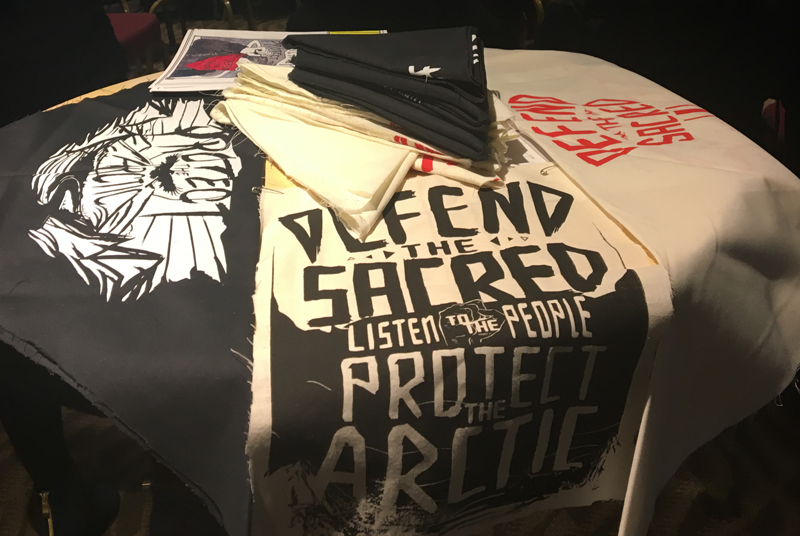
Photo by Ben Cushing
The Sierra Club is partnering with the Gwich’in Steering Committee in its fight to keep the refuge off-limits to drilling. The Gwich’in way of life revolves around the Porcupine caribou herd, which migrates annually to its calving grounds on the coastal plain.
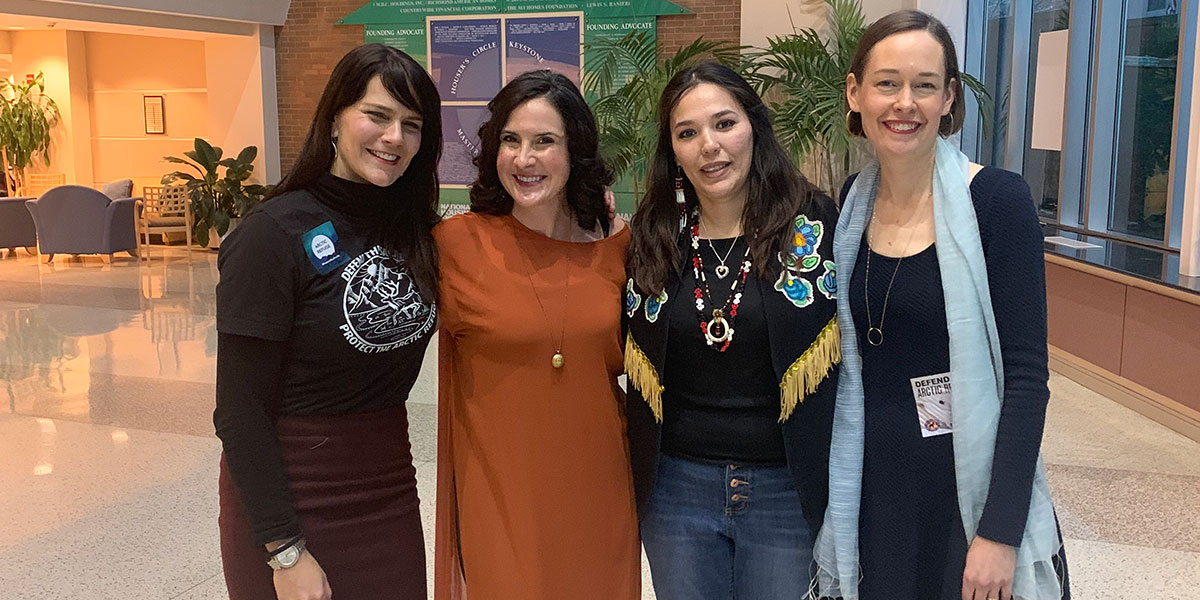 Lena Moffitt, Anna Jane Joyner, Bernadette Demientieff, and Mary Anne Hitt | Photo by Ben Cushing
Lena Moffitt, Anna Jane Joyner, Bernadette Demientieff, and Mary Anne Hitt | Photo by Ben Cushing
The February 13 hearing in DC was the last of eight public meetings—and the only one held outside Alaska—hosted by the Bureau of Land Management (BLM) to solicit feedback on the environmental impacts of drilling in the refuge. “Speaker after speaker delivered powerful testimony as to why the refuge should remain untouched,” says Rachel Mandelbaum, an organizer with the Sierra Club’s Our Wild America campaign.
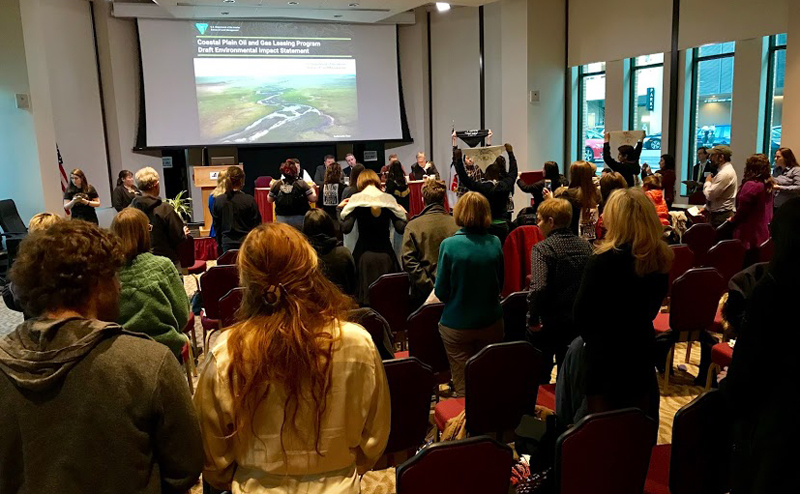
Photo by Ben Cushing
Among the speakers was Erik DuMont, director of Environment America’s Stop Drilling Campaign. “The coastal plain is the biological heart of the refuge,” he said. “It’s important to hibernating polar bears, musk oxen, caribou, and millions of birds from all 50 states and six continents. With clean, abundant, and economical energy choices available from sun and wind, industrial oil development in such a spectacular place as the Arctic National Wildlife Refuge is unjustifiable."
Activists with Defend the Sacred Alaska highlighted the rushed BLM review process and the lack of transparency and concern for public input. (The hearing format originally did not include space for public testimony, but this changed after a powerful protest at the first hearing in Fairbanks.)
Lena Moffitt, the Sierra Club's Our Wild America director, stressed that drilling in the refuge “isn’t just an environmental issue—it’s a human rights issue. The Sierra Club stands with the Gwich’in. We ask you to listen to them.”
Mary Anne Hitt, below, director of the Club’s Beyond Coal campaign, spoke about a trip she took to the refuge three years ago. “I floated 300 miles of the Porcupine River, from Old Crow to Fort Yukon, and I can say from personal experience that this area is a national treasure that would be devastated by oil drilling. Opening up the Arctic Refuge to oil drilling would not only destroy this magnificent place; it would also be a human rights crime against the Gwich’in people.”
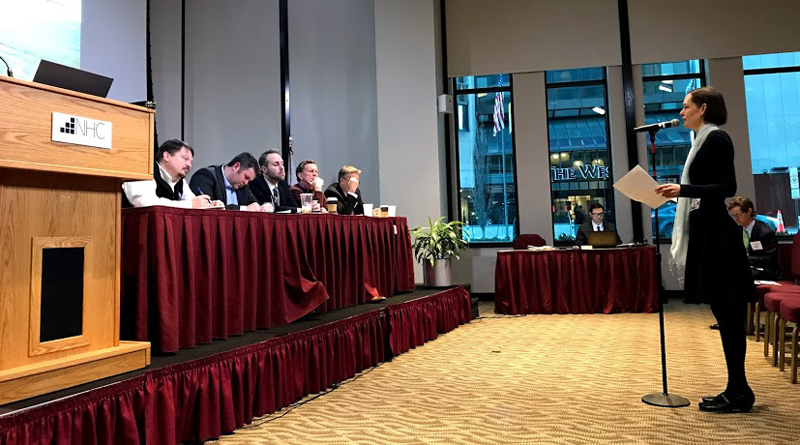
Photo by Ben Cushing
When Bernadette Demientieff, executive director of the Gwich'in Steering Committee, took the microphone, she asked everyone in the chamber who opposed drilling to rise. “Almost everyone in the room was on their feet,” Mandelbaum says.
Demientieff said opening the refuge up to drilling would push out the caribou and take away the Gwich’in’s main food supply. “People like money,” she said of the oil and gas companies seeking to drill in the refuge. “So do I, but not if it’s going to wipe out a whole nation of people, and not if it’s going to compromise our chances for survival. We will never sell our culture and our traditional way of life for any amount of money.”
Robert Vessels of the Sierra Club’s Military Outdoors program gave moving testimony as he recalled a canoe trip from the Brooks Range to the Beaufort Sea with 10 fellow veterans:
“On our approach, we were lucky enough to fly over the Porcupine caribou herd on their migration. There were so many caribou that they made the Brooks Range look like a swarming anthill. Camping along the riverbank, at the edge of our nation, I stood in awe at fields alive with activity and life. I’d never seen so many bird species in one place before. We saw musk oxen gamboling in the river, while an Arctic fox scampered around the tundra. And in the distance we could see a grizzly bear grazing.
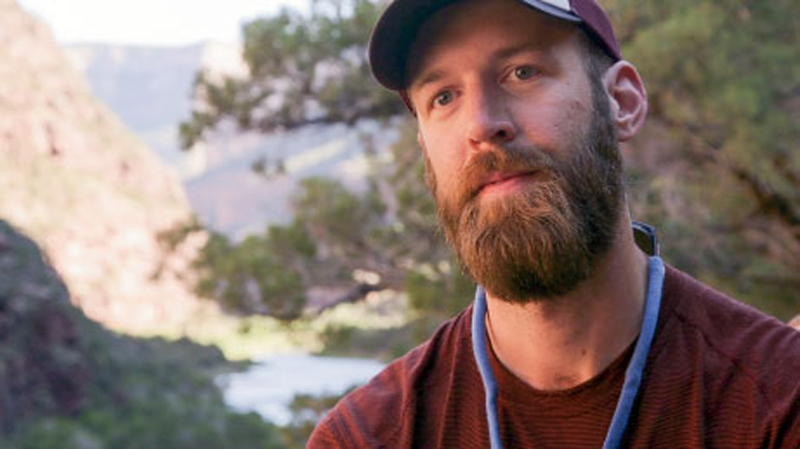
Robert Vessels of the Sierra Club's Military Outdoors program | Photo courtesy of Healing Waters
“These wild spaces define who we are as Americans,” Vessels said. “I spent much of my early twenties in conflict overseas. I believed that I was making the world a better place by fighting for democracy and human rights. Whether that's true or not is something I struggle with daily. The Arctic Refuge and other public lands are a physical representation of the democracy and freedom I thought I was fighting to protect. I stand before you today in solidarity with the Gwich'in people to express my deepest opposition to drilling in the Arctic National Wildlife Refuge.”
The BLM is accepting written comments through March 12. Take action: Tell the BLM that you strongly oppose drilling in the Arctic Refuge.
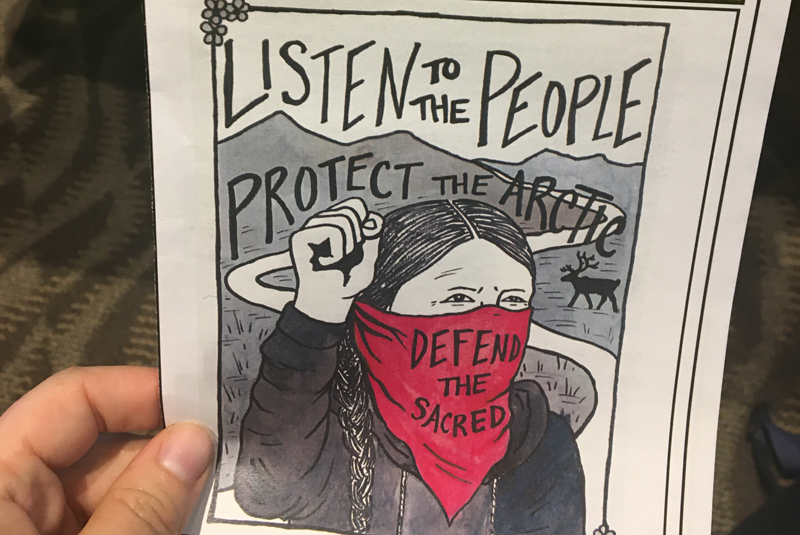
Photo by Ben Cushing
